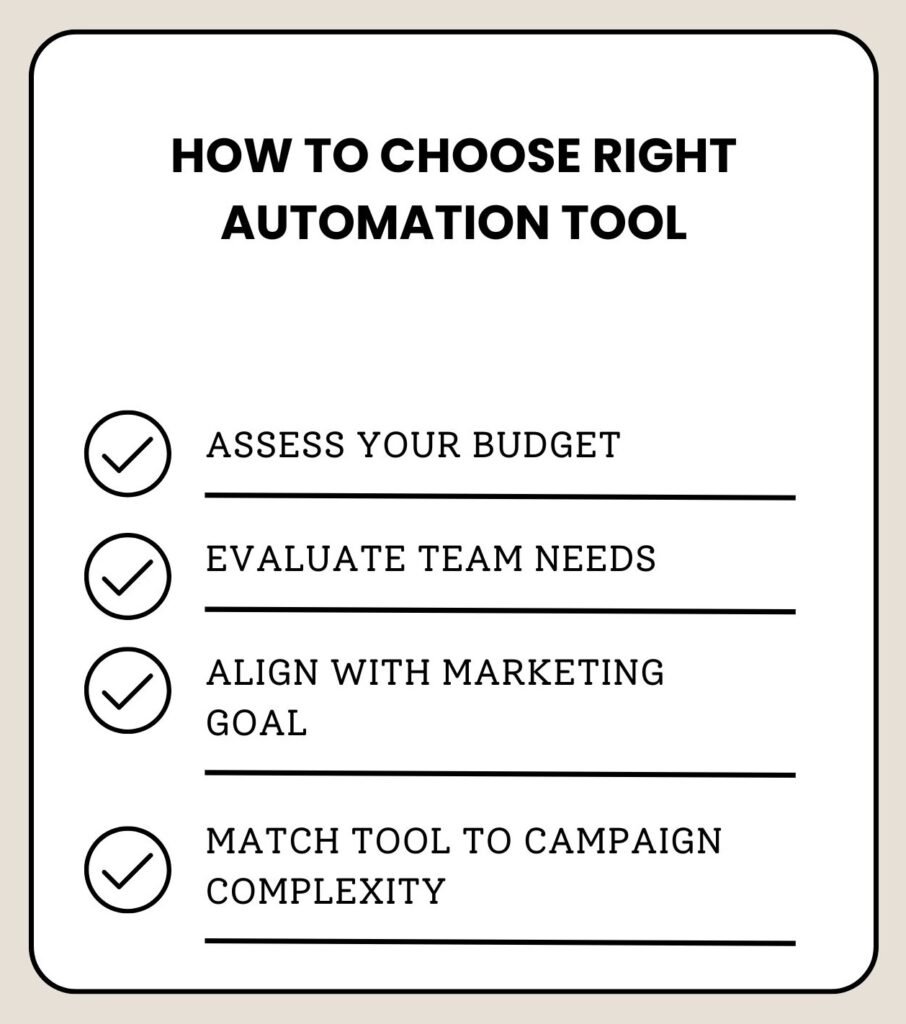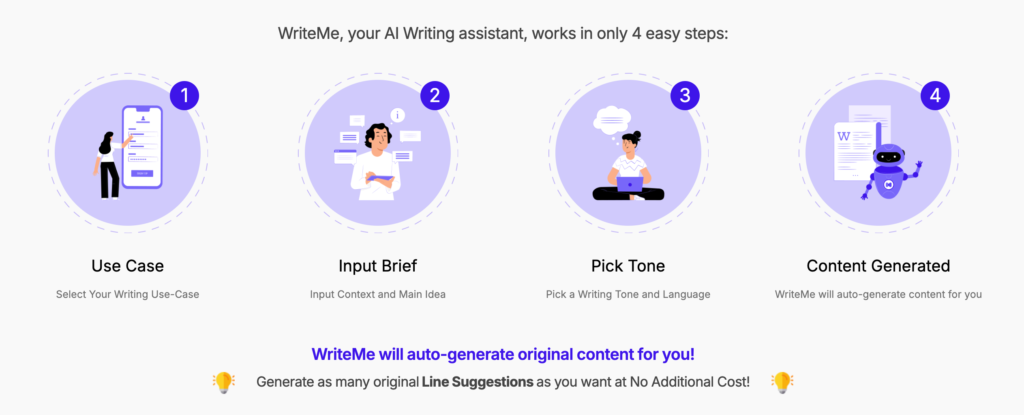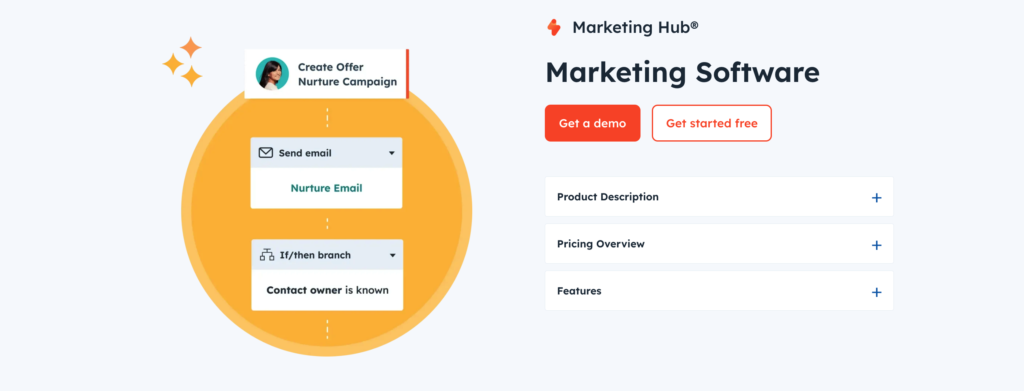Revolutionise Your Workflow with Content Marketing Automation
- Hanzla Ijaz, Farrah Khawaja
- content marketing
- 0 Comments
|
Getting your Trinity Audio player ready...
|
In today’s fast-paced digital landscape, marketers are continually seeking ways to enhance their efficiency and effectiveness. Content marketing automation has emerged as a vital solution, revolutionising how marketing strategies are executed. Essentially, content marketing automation refers to the use of software and tools that automate the distribution, scheduling, and tracking of marketing content across various channels. By implementing these tools, businesses can streamline workflows and reduce manual tasks, allowing for a more focused approach to content creation and engagement.
The transformation of marketing in the digital age demands that marketers adapt to rapidly changing consumer behaviours, preferences, and technologies. Traditional marketing strategies often fall short in meeting these new expectations. As digital channels proliferate, the volume of content required by brands to remain competitive has skyrocketed. This is where content marketing automation becomes indispensable. It empowers marketers to efficiently manage large volumes of content while ensuring consistency and accuracy in messaging.
Moreover, content marketing automation enhances the ability to personalise communications, which can significantly boost engagement. By leveraging data-driven insights, marketers can create targeted campaigns that resonate with their audience, thus improving the overall effectiveness of their marketing efforts. Automation tools facilitate the monitoring of key performance indicators, allowing marketers to analyze the performance of their content in real time and make necessary adjustments to optimise results.
As the demand for seamless user experiences grows, content marketing automation stands out as a critical component in the modern marketer’s toolkit. It not only helps in managing resources more effectively but also enables marketers to focus on crafting high-quality content that drives engagement and conversion. Consequently, embracing content marketing automation can lead to a significant competitive advantage in an ever-evolving market landscape.
Benefits of Content Marketing Automation

Content marketing automation tools have grown in significance within the digital marketing landscape, offering numerous advantages for businesses aiming to enhance their marketing efforts. One of the primary benefits of implementing these tools is the significant time savings they provide. By automating repetitive tasks such as scheduling social media posts, sending out newsletters, or curating content, marketers can streamline workflows and allocate more time to strategic initiatives. This leads to improved productivity and a more efficient use of resources.
Another compelling benefit is the reduction in workload that content marketing automation facilitates. Marketers often deal with the pressure of juggling multiple responsibilities. Automation minimizes the manual effort required for content distribution, allowing teams to focus on crafting quality content that resonates with their audience. This shift not only alleviates stress but also contributes to better content quality as more time can be dedicated to creative processes.
Improved accuracy is another critical advantage of these tools. Manual processes are prone to human error, which can compromise the effectiveness of marketing campaigns. By automating workflows, organisations can ensure that content is distributed consistently and accurately, thus enhancing their overall marketing efforts. Moreover, enhanced analytics provided by content marketing automation tools allow marketers to track performance metrics in real-time. This data-driven approach empowers businesses to refine their strategies based on real insights, ultimately leading to improved decision-making.
Lastly, content marketing automation helps to boost engagement. By delivering the right content to the right audience at the right time, businesses can create personalised experiences that resonate with their consumers. Engaging content fosters a deeper connection with audiences, resulting in increased brand loyalty and customer retention. A case study from a recent industry report indicated that companies utilizing content marketing automation witnessed up to a 40% increase in engagement rates. Automating your content marketing processes not only streamlines efforts but also cultivates lasting relationships with your audience.
Key Features of Content Marketing Automation Tools
Content marketing automation tools have revolutionised how organisations approach their marketing strategies, making them indispensable in modern digital marketing. To effectively streamline workflows and boost engagement, these tools come equipped with a variety of essential features that facilitate an efficient marketing process.
1. Content Scheduling
One of the primary features is content scheduling, which allows marketers to plan and publish content across multiple platforms at optimal times. This ensures that content reaches the target audience when they are most active, thereby maximising visibility and interaction. Additionally, scheduling empowers teams to maintain a consistent posting rhythm, which is crucial for audience retention.
2. Analytics tracking
It is another critical component that provides valuable insights into content performance. Through data-driven metrics, marketers can assess which pieces of content resonate most with their audience, enabling them to refine future strategies. Analysing user engagement metrics—including click-through rates and conversion rates—helps in understanding audience behaviour and preferences.
3. Content curation
This features streamline the process of gathering relevant content from various sources, allowing marketers to share valuable information with their audience without creating everything from scratch. This not only saves time but also enhances the perceived value of the content offered, positioning the brand as a thought leader.
4. Multi-channel management
Capabilities enable marketers to efficiently manage and distribute content across various platforms, ensuring a cohesive brand message. This feature is crucial for maintaining audience engagement across different social media and web channels while simplifying the execution of marketing campaigns.
Lastly, the optimisation capabilities of content marketing automation tools are vital for improving content visibility. These tools often include SEO features that help in crafting content that ranks higher in search engines, increasing organic traffic and promoting overall brand awareness. By incorporating these functionalities, businesses can enhance their marketing efforts and achieve more streamlined, effective workflows.
How to Choose the Right Automation Tool for Your Needs
Choosing the right content marketing automation tool is crucial for effectively streamlining workflows and boosting engagement. With a myriad of options available, it’s vital to evaluate tools based on specific needs and objectives. Here are key factors to consider when making your selection.

- First, assess your budget. Content marketing automation tools vary significantly in cost, from free versions to premium subscriptions. It is essential to determine what you can afford without compromising on functionalities that align with your marketing goals. Understanding the return on investment (ROI) associated with different tools can also guide your decision-making process.
- Secondly, consider the size of your team and their capabilities. With larger teams, you may require a tool that offers advanced collaboration features. Conversely, small teams might benefit from all-in-one solutions that simplify tasks without overwhelming members. Evaluate how user-friendly a platform is, as ease of use can significantly impact your team’s productivity.
- Next, align your selection with your marketing goals. Whether you aim to enhance lead generation or improve customer retention, your chosen content marketing automation tool should support these objectives. Look for features that can automate campaign management, facilitate audience segmentation, and track performance metrics.
- Additionally, consider the complexity of your campaigns. For sophisticated strategies that involve multi-channel tactics, a more robust automation tool may be necessary. Features such as predictive analytics, A/B testing capabilities, and social media integration can be vital in executing comprehensive marketing initiatives.
Finally, utilise a checklist to compare various tools against these criteria. Incorporating feedback from your team can also ensure that the chosen tool meets collective needs. Ultimately, the right content marketing automation tool should enhance your workflow and effectively contribute to achieving your marketing objectives.
Top Content Marketing Automation Tools
In the rapidly evolving landscape of digital marketing, implementing effective content marketing automation tools is crucial for marketers aiming to streamline workflows and enhance productivity. Among the most notable tools available today, Writeme.ai stands out for its advanced capabilities in automating content creation and management.
Writeme.ai utilises artificial intelligence to generate high-quality written content efficiently. This tool allows marketers to create blog posts, social media updates, and more, reducing the time spent on content production. By leveraging its user-friendly interface, marketing teams can easily customise their content, ensuring it aligns with their brand’s voice while accelerating the content creation process.

Another prominent tool in the realm of content marketing automation is HubSpot. This comprehensive platform integrates various marketing functionalities, including email marketing, social media management, and analytics. HubSpot’s automation features enable marketers to set up workflows that automate repetitive tasks, allowing teams to focus on strategy rather than operational duties. Additionally, its robust analytics tools help in tracking engagement metrics, providing valuable insights into campaign performance.

ContentCal is also gaining traction as a top choice for social media content planning and scheduling. This tool facilitates collaboration among team members, enabling seamless communication and coordination on content calendars. By automating the posting process, ContentCal empowers marketers to maintain a consistent online presence, ultimately boosting engagement with their target audience.
Another contender is Buffer, a tool known for its simplicity and efficiency in scheduling posts across various social media platforms. With its analytics capabilities, Buffer offers insights into the best times to post and the type of content that resonates with audiences. These features help marketers enhance their engagement strategies significantly.

Overall, leveraging content marketing automation tools like Writeme.ai, HubSpot, ContentCal, and Buffer can profoundly transform marketing efforts. By streamlining workflows and automating essential tasks, these tools allow marketers to focus on strategic initiatives that drive successful outcomes.
Integrating Automation with Your Marketing Strategy
To successfully integrate content marketing automation into your existing marketing strategy, it is essential to approach this transition with a well-structured plan. The primary goal of leveraging automation tools is to streamline workflows while enhancing overall efficiency. By automating repetitive tasks, such as social media posting or email campaigns, teams can devote more time to creative strategies and personalised engagement with their audience.
The first step in implementing content marketing automation is to conduct a thorough analysis of your current marketing processes. Identify areas where automation can provide the most significant benefits, such as lead nurturing, content distribution, or analytics tracking. This assessment will help pinpoint which marketing automation tools can best streamline workflows and boost engagement through targeted, relevant communication.
Moreover, it is crucial to maintain a balance between automation and personal touch. While automation can facilitate efficiency, it should not come at the cost of losing the human connection with your audience. Personalisation should remain a vital component of your marketing strategy, even when employing automation. Utilise the data collected through marketing automation tools to segment your audience and customise messages that resonate with their specific needs and preferences.
Additionally, educate your team on the capabilities and limitations of the chosen content marketing automation tools. Encourage collaboration and open communication among team members to ensure everyone is aligned with the automation strategy. Regularly review the performance of automated processes to assess their effectiveness and make adjustments as necessary.
By carefully planning the integration of content marketing automation into your marketing strategy, organisations can enhance productivity, foster creativity, and ultimately drive better results in their marketing efforts.
Case Studies: Success Stories of Marketing Automation
In recent years, numerous businesses have implemented content marketing automation tools to enhance their marketing strategies. Several case studies exemplify how automation can effectively streamline workflows and increase overall engagement with target audiences. One notable example is a leading e-commerce company that utilised automation to manage their email marketing campaigns. By segmenting their audience and delivering personalised content through automated triggers, the company observed a 40% increase in open rates and a subsequent rise in sales conversions.
Another success story is that of a B2B software firm, which adopted content marketing automation to facilitate lead nurturing. By automating the delivery of relevant content based on user behaviour, they were able to maintain a consistent engagement level. This approach resulted in a 30% increase in lead retention and a remarkable boost in the number of demos booked by their sales team. The critical element here was the integration of their CRM with the automation platform, allowing for real-time updates and tailored content delivery.
Additionally, a non-profit organisation leveraged content marketing automation to amplify their fundraising efforts. By automating the distribution of newsletters, event announcements, and impact stories, they managed to enhance their communication strategy remarkably. Their targeted campaigns led to a 25% increase in donor engagement within a year, demonstrating how strategic use of automation can yield substantial results in the non-profit sector as well.
These examples underscore the importance of content marketing automation in various industries. By implementing the right tools to manage and distribute content, organisations can unlock greater efficiency in their processes, leading to improved engagement metrics and fulfilling their marketing objectives.
Common Challenges and How to Overcome Them
Implementing content marketing automation can significantly enhance productivity, but it is not without its challenges.
- One common issue marketers face relates to technical difficulties. These problems may arise from integration issues between existing systems and new content marketing automation tools. To mitigate such challenges, it is essential to invest time in the initial setup process and ensure that the chosen tools are compatible with your current technology stack. Seeking assistance from IT specialists or consulting documentation provided by vendors can also aid in overcoming these hurdles.
- Another prevalent challenge is the resistance to change among team members. Automation can evoke anxiety and uncertainty regarding job security and the value of human contributions. To address this, clear communication about the benefits of content marketing automation is necessary. Facilitating training sessions can help ease this transition by demonstrating not only how these tools streamline workflows but also how they empower team members to focus on high-value tasks that require creativity and strategic thinking. By highlighting these advantages, organisations can foster a culture that embraces innovation.
- Moreover, maintaining a human touch in automated content can be difficult. While automation can help with efficiency and consistency, the essence of authentic engagement often lies in personal interactions. To balance automation with a human approach, marketers should consider strategies such as segmenting their audience to deliver tailored content and utilizing data analytics to inform decision-making processes. By personalizing communications based on user behavior and preferences, marketers can boost engagement while still taking advantage of content marketing automation.
In conclusion, while challenges may arise when adopting content marketing automation, proactive strategies can significantly mitigate these hurdles. By addressing technical issues, managing resistance to change, and ensuring a human touch, marketers can successfully harness the power of automation to improve their workflows and engagement outcomes.
Embracing the Future of Marketing
As we navigate the rapidly evolving landscape of digital marketing, it becomes increasingly clear that the integration of content marketing automation tools is paramount for success. These solutions offer businesses the capability to streamline workflows, ensuring that resources are utilised efficiently and effectively. By automating routine tasks, organisations can allocate their time and effort toward more strategic initiatives that foster creativity and innovation.
The benefits of adopting content marketing automation extend beyond mere time savings. These tools not only enhance productivity but also significantly boost engagement with target audiences. With the ability to personalise content delivery, brands can create tailored messages that resonate with their customers, ultimately driving higher conversion rates. By automating the distribution of content across multiple channels, businesses can ensure consistent messaging while maintaining the flexibility to respond swiftly to market trends.
Moreover, through careful analysis of data provided by content marketing automation solutions, companies can glean insights that inform future marketing strategies. This data-driven approach equips marketers with the knowledge they need to refine their campaigns continually, ensuring content is not only relevant but also impactful. As consumer preferences rapidly shift, organisations equipped with these tools are better positioned to adapt and evolve, maintaining competitiveness in their respective markets.
In conclusion, embracing content marketing automation represents a pivotal step toward revolutionizing workflow and enhancing overall business performance. By investing in the right automation tools, marketers can foster a more dynamic relationship with their audience and stay ahead in the digital marketing arena. As technology continues to advance, those who leverage these innovations will undoubtedly reap the benefits of enhanced engagement and operational efficiency.





